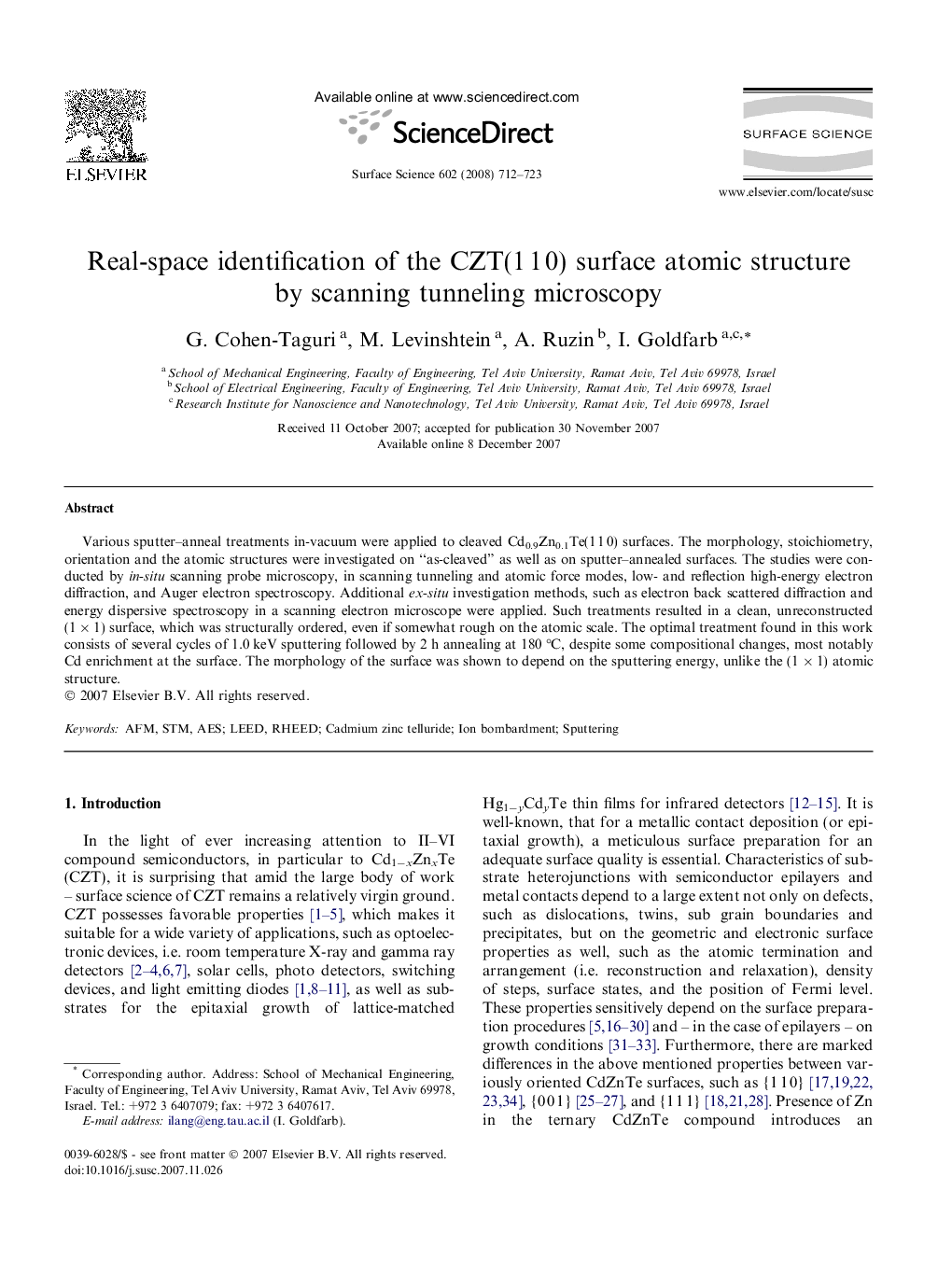| Article ID | Journal | Published Year | Pages | File Type |
|---|---|---|---|---|
| 5425445 | Surface Science | 2008 | 12 Pages |
Abstract
Various sputter-anneal treatments in-vacuum were applied to cleaved Cd0.9Zn0.1Te(1 1 0) surfaces. The morphology, stoichiometry, orientation and the atomic structures were investigated on “as-cleaved” as well as on sputter-annealed surfaces. The studies were conducted by in-situ scanning probe microscopy, in scanning tunneling and atomic force modes, low- and reflection high-energy electron diffraction, and Auger electron spectroscopy. Additional ex-situ investigation methods, such as electron back scattered diffraction and energy dispersive spectroscopy in a scanning electron microscope were applied. Such treatments resulted in a clean, unreconstructed (1 Ã 1) surface, which was structurally ordered, even if somewhat rough on the atomic scale. The optimal treatment found in this work consists of several cycles of 1.0 keV sputtering followed by 2 h annealing at 180 °C, despite some compositional changes, most notably Cd enrichment at the surface. The morphology of the surface was shown to depend on the sputtering energy, unlike the (1 Ã 1) atomic structure.
Related Topics
Physical Sciences and Engineering
Chemistry
Physical and Theoretical Chemistry
Authors
G. Cohen-Taguri, M. Levinshtein, A. Ruzin, I. Goldfarb,
